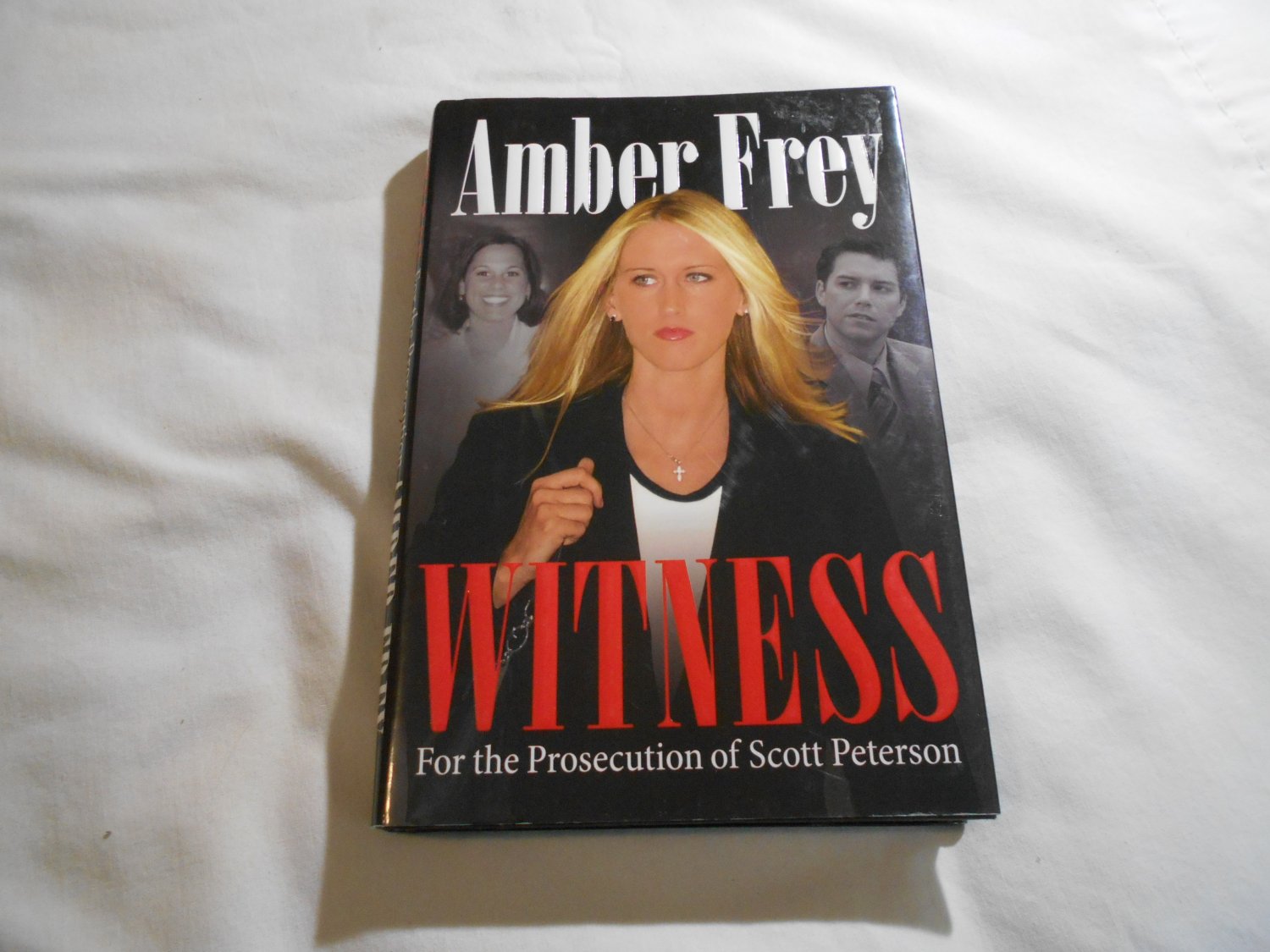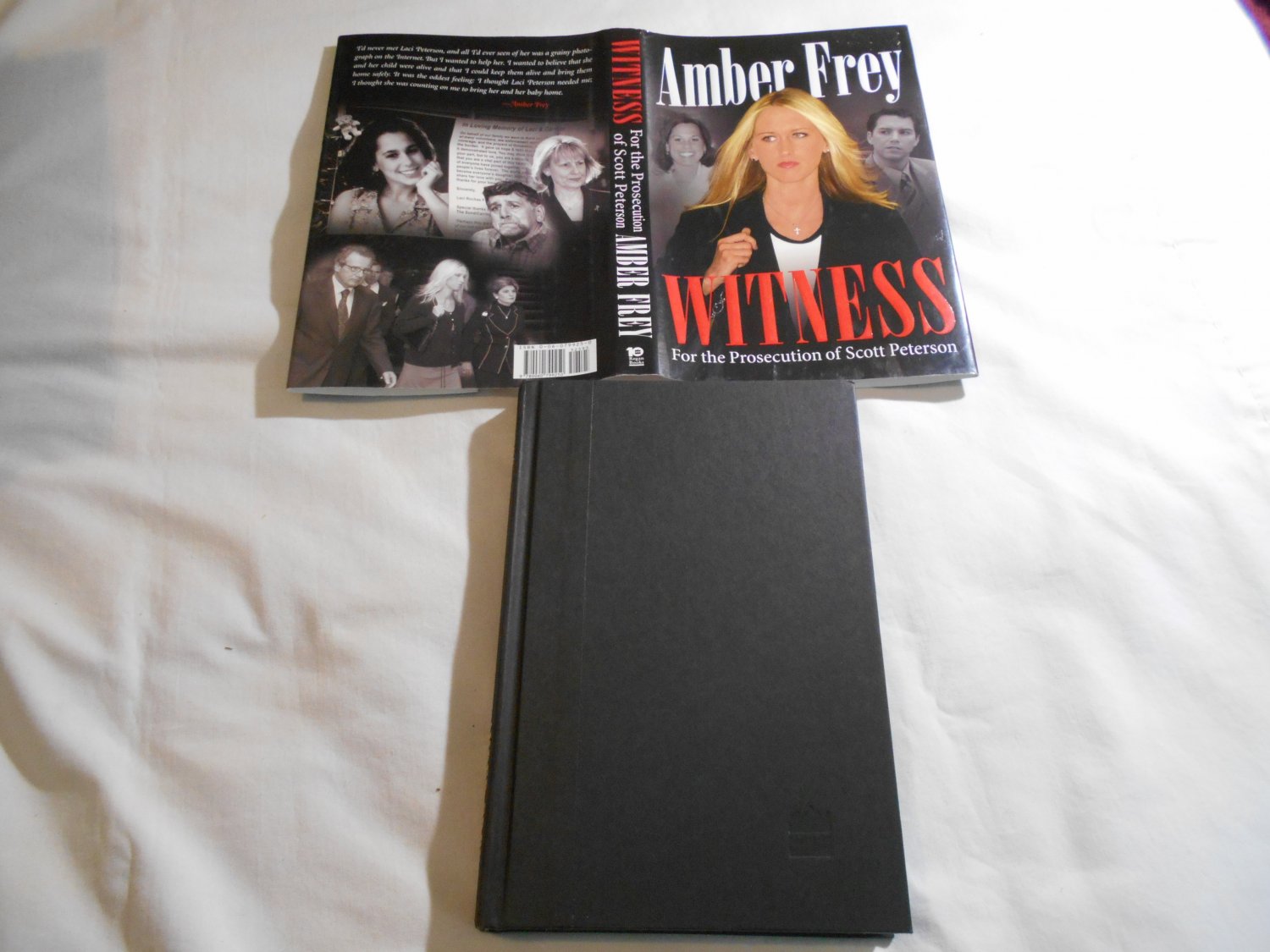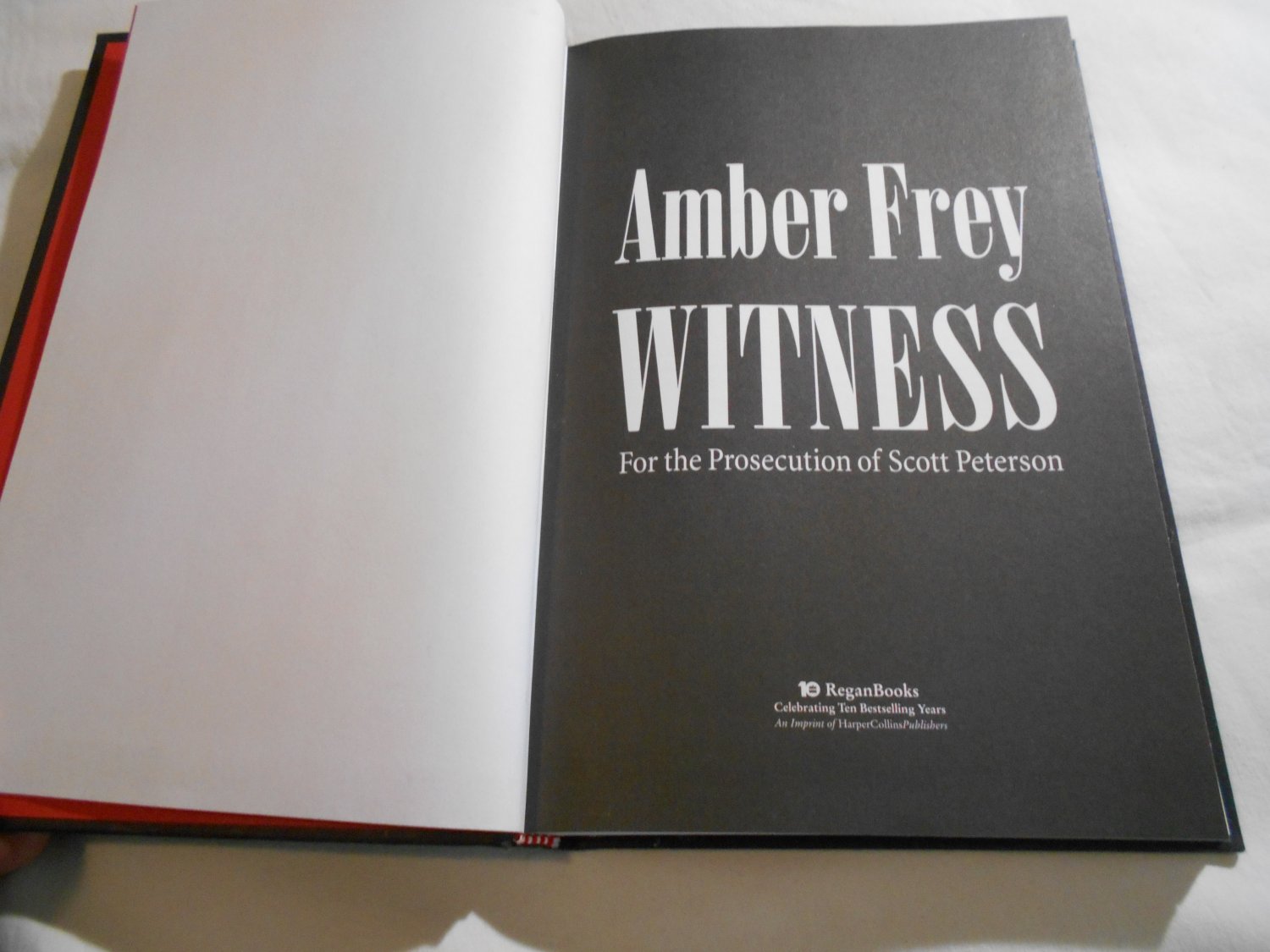Witness For The Prosecution Of Scott Peterson - Official Roles
When we think about legal situations, the idea of a witness often brings to mind dramatic courtroom scenes, people testifying under oath, and the weight of their words. Yet, the act of witnessing, in its purest form, plays a far more common and foundational role in our everyday legal dealings, particularly when it comes to formal paperwork. It's almost as if someone needs to be there, officially, to say 'yes, I saw this happen,' and that's a very specific kind of trust.
This need for an impartial observer extends to many aspects of property and financial agreements, where a signature needs to be verified as authentic. For instance, whether it's a deed for a new home or a loan adjustment, someone often has to stand by and confirm that the person signing is indeed who they claim to be. This quiet, yet very important, role ensures that documents hold up if they ever face scrutiny, perhaps even in a scenario that feels a little like being a witness for the prosecution of Scott Peterson, if you were to consider the official verification process.
Understanding the different ways someone can serve as an official observer, and the specific rules that go along with it from state to state, can be pretty eye-opening. Some places have very clear guidelines about who can and cannot watch a signing, while others are a bit more flexible, but always with the core idea of making sure everything is done on the up and up. This exploration will shed some light on the various forms of official witnessing, particularly in the context of notarization, and how these practices ensure reliability.
Table of Contents
- The Notary's Place as an Official Observer
- Where Does a Notary Stand as a Witness?
- What About Needing a Second Pair of Eyes?
- Understanding the "Credible Observer"
- What's a "Witness Closing" All About?
- The Notary's Unbiased Role
- Are Witnesses Always Required?
- When the Paperwork Gets Tricky
The Notary's Place as an Official Observer
Notaries and the Act of Witnessing for the Prosecution of Scott Peterson
A notary public often serves as a kind of official, neutral observer when people sign important papers. Their main job is to confirm the identity of the person signing and to watch them put their mark on the document. This makes sure that the signature is truly that person's, and that it was done willingly. In some respects, this role of official verification could be thought of as providing evidence, much like a witness might do in a formal proceeding, even if it's just for everyday legal papers.
This neutral stance is pretty important. A notary isn't there to take sides or to understand the contents of the document in detail, but simply to confirm the act of signing. It's a bit like a referee in a game, just making sure the rules of the signing process are followed. This unbiased approach means their confirmation holds a lot of weight, should questions about the signing ever come up later, say, in a situation where one might need a witness for the prosecution of Scott Peterson.
The notary's confirmation, once added to the document, acts as a public record of the signing event. This record adds a layer of trust and security to the paper. It means that if someone ever tries to argue that a signature isn't real, or that it was done under pressure, there's an official record from a neutral party to back up the truth of what happened. So, in a way, they are always building a factual record.
- Is Snoop A Trump Supporter Now
- Nicepool The Proposal
- Jason Spillers
- Is Richard Gere Sick
- Nicholas Hoult Meme
Where Does a Notary Stand as a Witness?
State-Specific Rules for Being a Witness for the Prosecution of Scott Peterson
The rules about whether a notary can also be a regular witness on a document vary quite a bit from one state to another. For instance, in Georgia, a notary might be able to act as an additional witness. This means they can serve both their notary function and also sign as one of the required witnesses on a paper, if that's what the document calls for. It's quite different from other places, you know, where the roles are kept separate.
Louisiana, on the other hand, has a different approach; a notary there must act as a witness. This is a very specific requirement that means their presence isn't just for the notarization itself, but also for fulfilling the witness requirement of the document. This is a pretty unique situation and shows just how varied state rules can be regarding who can officially watch a signing for something like property papers, which could, in some far-off sense, be relevant if one were to be a witness for the prosecution of Scott Peterson.
Then there's Connecticut, which takes a completely different path. In that state, a notary cannot also be a witness on the same document. Connecticut is what people call a "witness state," meaning it has its own distinct rules for who can serve as an official observer. This means if a document needs a notary and a witness, those have to be two different people. So, it's really important to know the local rules before doing anything.
What About Needing a Second Pair of Eyes?
When Extra Witnesses are Needed for the Prosecution of Scott Peterson
Sometimes, a paper requires more than just one official observer. For example, I've heard of situations where someone was hired to watch seller signatures for property in Florida, even while they were located in Kentucky. This kind of arrangement often means a second person is needed to watch the signing, beyond the notary. It’s almost as if the legal system wants extra sets of eyes on certain very important transactions, to make sure everything is absolutely clear.
I've also been told directly that I would need to watch a signing, and that a second observer would be required. This isn't uncommon, especially for certain types of deeds or agreements that transfer property ownership. When this happens, it's my job to make sure that either the person getting the loan finds their own additional observer, or I provide one myself. This ensures the document meets all the legal requirements for its validity, which, you know, is pretty important.
If I have to find and provide that second observer, I typically charge a small fee for that extra service. It makes sense, really, as it's an additional task and responsibility to ensure all the necessary people are present for the signing. This is just part of making sure all the boxes are checked, so to speak, to prepare a document that could, in some hypothetical future, be part of a larger legal situation, like being a witness for the prosecution of Scott Peterson, if the document's authenticity were ever questioned.
Understanding the "Credible Observer"
The Role of a Credible Witness for the Prosecution of Scott Peterson
In some places, when a person signing a document doesn't have the usual forms of identification, a "credible observer" can be used. This is someone who knows the signer personally and can swear under oath about their identity. This trustworthy person appears before the official and gives a sworn statement, essentially vouching for the signer. It's a way to confirm who someone is when other typical methods aren't available, which is pretty clever, actually.
The idea here is that if the notary personally knows someone who can confirm the signer's identity, that person's sworn statement is considered reliable enough. This trusted individual essentially takes an oath, promising to tell the truth about knowing the signer. This process is a way to make sure that even without a driver's license or passport, the identity of the person signing is properly confirmed, which, you know, adds a layer of security.
For this "credible observer" method to work as a form of identification, the notary must be absolutely sure that the person acting as the observer is indeed trustworthy and truly knows the signer. This means the notary isn't just taking their word for it; there's an expectation of a genuine connection and knowledge. This process is about establishing identity through a human chain of trust, which, in a way, is a fundamental part of providing reliable evidence, perhaps even like being a witness for the prosecution of Scott Peterson in a general sense.
What's a "Witness Closing" All About?
Exploring Witness Closings for the Prosecution of Scott Peterson
I sometimes get requests for something called a "witness closing" through platforms like Snapdocs. This might make you wonder, what kind of work is that, exactly? Basically, it often means they're just asking for a notary to show up and watch the signing, but without performing a full notarization. It's a bit like being an official spectator, ensuring the signatures happen as they should, without necessarily putting an official notary stamp on the document itself.
The core question is whether they simply want a notary to be present as an additional pair of eyes for the signing. This can happen when a document needs a witness, but perhaps doesn't require a notary's official seal or certificate for that specific part. It's a separate role from notarization, though a notary's background in official observation makes them a good fit for it. It's just a different kind of official watchfulness, you see.
This type of closing highlights that the act of watching a signature happen, independently of the notary's usual duties, is a distinct and valuable service. It underscores the importance of having an impartial person confirm that a signature was indeed made by a specific individual. So, it's really about the integrity of the signing process itself, which is pretty important for any paper that might one day need to stand up to scrutiny, perhaps even in a situation where someone is acting as a witness for the prosecution of Scott Peterson.
The Notary's Unbiased Role
Ensuring Fairness as a Witness for the Prosecution of Scott Peterson
A notary public acts as an official, neutral observer to the identity and signature of the person who comes before them for a specific purpose. This means they don't have a personal stake in the document's outcome. Their job is simply to confirm the facts of the signing: who signed, and that they did so willingly. This unbiased position is pretty central to their role, as it makes their confirmation reliable and trustworthy, you know.
The person appearing before the notary might be taking an oath, or making a formal promise. The notary's presence ensures that this solemn act is performed correctly and that the person making the promise is indeed who they say they are. This impartial observation ensures that the integrity of the oath or affirmation is maintained. It's really about making sure things are done fairly and openly.
While there might not be specific laws in every state that say who can or cannot serve as a witness in general, it's generally considered a good idea to use someone who is not involved with the document in any way. An unbiased party ensures that there's no question of influence or personal gain. This practice helps maintain the honesty of the process, much like any good witness, which could, in a broader sense, apply to being a witness for the prosecution of Scott Peterson in a legal setting.
Are Witnesses Always Required?
The Varied Need for a Witness for the Prosecution of Scott Peterson
Witness requirements on official papers that need to be recorded often come from the specific laws about putting things on public file. For instance, Florida, as an example, requires two observers on deeds that transfer property from one person to another. This means that for a home sale in Florida, you'd always need at least two people to watch the seller sign, besides the notary, if one is present. It's a very specific rule that must be followed.
However, it's also true that observers are not always needed. Many documents do not require any additional people to watch the signing beyond the person doing the notarization. It just depends on the type of paper and the rules of the place where it's being signed or recorded. So, you can't just assume every paper needs an extra set of eyes; it really varies quite a bit.
This variability means that understanding the specific requirements for each document and each state is pretty important. What works in one place, or for one type of paper, might not work for another. This constant checking of the rules is a significant part of the work, ensuring that every document is prepared correctly, which could, in some hypothetical situation, be relevant if its authenticity were ever questioned, perhaps in a case where someone is a witness for the prosecution of Scott Peterson.
When the Paperwork Gets Tricky
Handling Confusing Notarial Language as a Witness for the Prosecution of Scott Peterson
Sometimes, the official wording that comes with a notarization can be a bit confusing, especially when it talks about observers. I've seen papers where the notarial text includes phrases that suggest the observer is appearing before the notary and making an oath, even if that's not the typical role of a general observer. This kind of wording can make you scratch your head, wondering what exactly is expected. It's almost as if the legal language itself can create a puzzle.
If a document that needs notarization doesn't already have a section for the notary's official statement about an oath or acknowledgment, a notary has to add one. This ensures that the notary's actions are properly documented. However, when the document also requires a general observer to sign, and the notary's statement then refers to that observer making an oath, it can lead to some mixed messages. This is where things can get a little unclear, you know.
This kind of wording can create a situation where it seems like the general observer is also performing a notarial act, which isn't usually the case. It's a reminder that even official documents can have unclear parts, and it's up to the person handling them to interpret what's needed correctly. This careful interpretation is vital to ensure that all parties involved, including those who might, in a very general sense, be considered a witness for the prosecution of Scott Peterson through their official capacity, are fulfilling their roles properly.
- Is Richard Gere Sick
- Jennifer Lopez Leg
- Kristin Sweeney
- White Coat Ceremony Outfit
- Hilary Duff Sports Illustrated

Witness: For the Prosecution of Scott Peterson by Amber Frey (2005

Witness: For the Prosecution of Scott Peterson by Amber Frey (2005

Witness: For the Prosecution of Scott Peterson by Amber Frey (2005